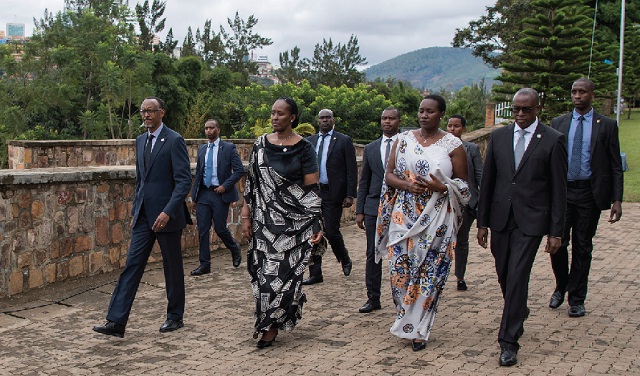
Country marks 100 days of Kwibuka
Kampala, Uganda | STEPHEN NUWAGIRA & FRANCIS BYARUHANGA | President Paul Kagame used the launch of the annual Kwibuka genocide against the Tutsi commemoration to urge Rwandans to be open and truthful about it.
“Rwanda’s truth can neither be erased nor be forgotten,” he said at 24th commemoration of the genocide against the Tutsi (Kwibuka24) event at the Kigali Genocide Memorial in Gisozi, Gasabo District. “Remembrance reminds us that some problems were caused by ourselves and it’s another way of confronting Rwanda’s tragic past,” he said, “It’s also a reminder that the Rwandan people have primary responsibility of addressing the challenges they face, which is why we must unite for the common goal of restoring and rebuilding themselves and our country.”
Kagame also said commemoration is about the fight against external challenges, a veiled reference to foreign influence during the 1994 genocide against the Tutsi and current challenges the country faces from external forces.
The president had earlier lit the `Remembrance Flame’ to mark the beginning of the Genocide Commemoration Week from April 07 to April 13. The flame symbolises remembrance as well as the resilience and courage of Rwandan people decades after the 1994 genocide against the Tutsi.
It is an austere week with flags at government buildings, foreign embassies and high commissions flying at half-mast. No entertainment is allowed.
FEATURED: BPR Atlas Mara joined residents of Gatsibo District to remember victims of the 1994 Genocide against the Tutsi at Kiziguro memorial. @BPR_AtlasMara #Kwibuka24 https://t.co/20luPZUIAn pic.twitter.com/4Sw5BvVEKF
— The New Times (Rwanda) (@NewTimesRwanda) April 17, 2018
Instead a solemn event is held overnight in the Amahoro National Stadium in Kigali at which testimonies of perpetrators of the genocide and survivors are punctuated by songs and poetry. Up to 100 names of Genocide victims are read. This event is preceded by an afternoon ` Walk to Remember’ through Kigali led by President Kagame in procession with citizens from all walks of life.
As remains of victims of the genocide continue to be found all the time in forlorn pits and forests, the Kwibukaperios is also the time when new burial locations are found for them. Muyira in Nyanza district is where a memorial has been constructed for the remains of about 90,000 murdered victims. People who suffered various traumas during the genocide also receive support; material, physical, and emotional, from other residents.
The United Nations named April 7 as the Day of Remembrance of the Victims of the Rwanda Genocide to commemorate the deaths of over 800,000 people who were murdered during the 1994 genocide in Rwanda.
Kagame also said that commemoration is about Rwandans making a commitment to continue working together to improve their livelihood and contribute to the country’s development.
“Commemoration is about us continuing to work together and united as Rwandans; it’s about fighting against wrong elements to avoid repeat of what happened in 1994, and is also about developing ourselves and country,” Kagame told a small gathering that included foreign envoys, local leaders, and Kigali residents. Government representatives from Senegal, the UK, and Estonia attended. FakiMahamat, the chairperson of African Union Commission also attended the session held amidst light early April rain.
Before the president’s speech, a minute of silence was observed in memory of those who died during the genocide.
 The Independent Uganda: You get the Truth we Pay the Price
The Independent Uganda: You get the Truth we Pay the Price



